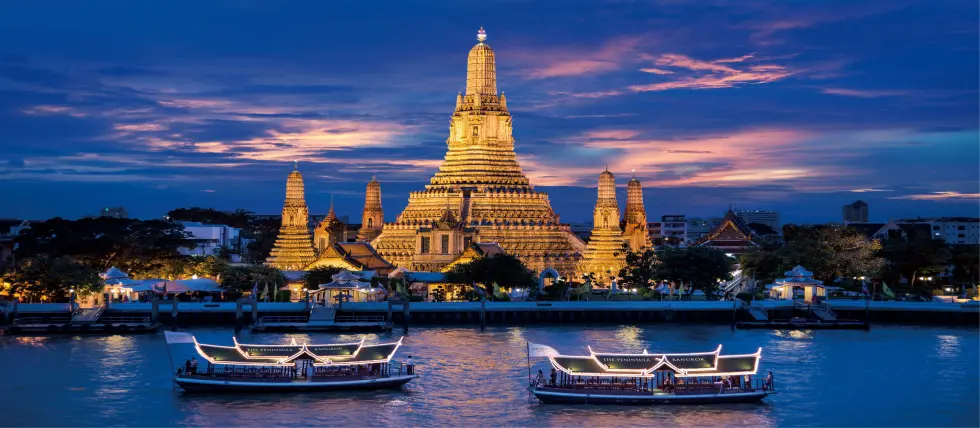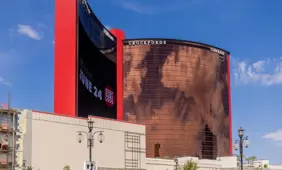Thailand Eyes Legalization of Seven Casinos, Three in Bangkok
Thailand's newly appointed Prime Minister Paetongtarn Shinawatra has addressed concerns about the country's potential move toward casino legalization, signaling her government's intent to push forward with integrated resort (IR) developments. According to local media reports, the plan includes constructing up to seven IRs across the nation as part of a broader strategy to stimulate the economy, with three of these projects slated for the capital city of Bangkok.

The announcement comes on the heels of a policy statement released on Sunday, which Prime Minister Paetongtarn is scheduled to present to Parliament later in the week. This policy outlines three major infrastructure initiatives that are central to her administration's economic recovery plans. These initiatives emphasize large-scale entertainment complexes designed to enhance Thailand's appeal as a global tourist destination, a move likely to create substantial economic impact through tourism, job creation, and foreign investment.
Related: Inbound Thailand PM Promises to Keep Casino Debate AliveOn September 9, The Nation reported statements from Suksit Srichomkwan, Deputy Secretary-General to the Prime Minister, which further elaborated on the government's plans. According to Srichomkwan, the current casino legislation, which is being reviewed by the cabinet, outlines provisions for three IR developments in Bangkok. These developments are projected to require a minimum investment of THB100 billion (approximately US$3 billion) each, marking a substantial commitment to the city's economic infrastructure.
In addition to the Bangkok-based projects, up to four more integrated resorts are expected to be developed in other key tourist provinces across Thailand. Each of these additional IRs will require an estimated investment of around THB50 billion (US41.5 billion). The move to spread these developments across tourist hubs is aimed at ensuring that the economic benefits of the projects extend beyond the capital, potentially boosting tourism and local economies in regions known for their natural beauty and cultural heritage.
As per the reports, the casino areas within these integrated resorts would be limited to covering no more than 10% of the total floor space of the developments. This stipulation is part of a broader strategy to balance the entertainment offerings within these complexes, which will include hotels, restaurants, shopping centers and cultural attractions in addition to gaming areas. This approach mirrors similar IR models seen in other countries, where gaming forms just one aspect of a larger entertainment and tourism experience.
More Business News
 Business
Business
Fitch Analysts Paint Potentially Dire Picture of US Casino Operators' Future in Macau
Apr 25, 2025The Thailand Transformation Begins
The development of these IRs is part of a wider vision for Thailand's future under Paetongtarn's leadership. Alongside the casino resorts, two other "mega projects" were highlighted in the policy statement. The first, dubbed the "Pearl Necklace" project, is a large-scale flood protection initiative aimed at safeguarding Bangkok and its surrounding areas from the increasing threat of rising sea levels. This project involves the construction of nine artificial islands along a 60-mile coastal stretch, creating a buffer zone to reduce the impact of future flooding events.
The second major project is the Land Bridge project, which aims to enhance transportation and travel capabilities between Thailand's Gulf of Thailand and Andaman coasts. This initiative includes the construction of deep seaports on both coasts, which will improve goods transportation and tourism flow, further contributing to Thailand's economic growth. The Land Bridge project is seen as a critical infrastructure development for the country, which relies heavily on both tourism and trade for its economic well-being.
According to Thailand's draft casino bill, initial licenses for the IR projects will be granted for a 30-year term, with a review to be conducted every five years. The bill also specifies 10 types of businesses that will be permitted to operate within these integrated entertainment complexes. These include various amenities, including hotels, restaurants, stadiums and nightclubs. There will also be cultural centers designed specifically to promote Thai traditions.
RELATED TOPICS: Business
Most Read
Must Read
 Interviews
Interviews
Sweepstakes Casinos: Thriving in an Ever-Changing Industry – Interview with Attorney Stephen C. Piepgrass
Feb 17, 2025 Interviews
Interviews






Review this New Post
Leave a Comment
User Comments
Comments for Thailand Eyes Legalization of Seven Casinos, Three in Bangkok